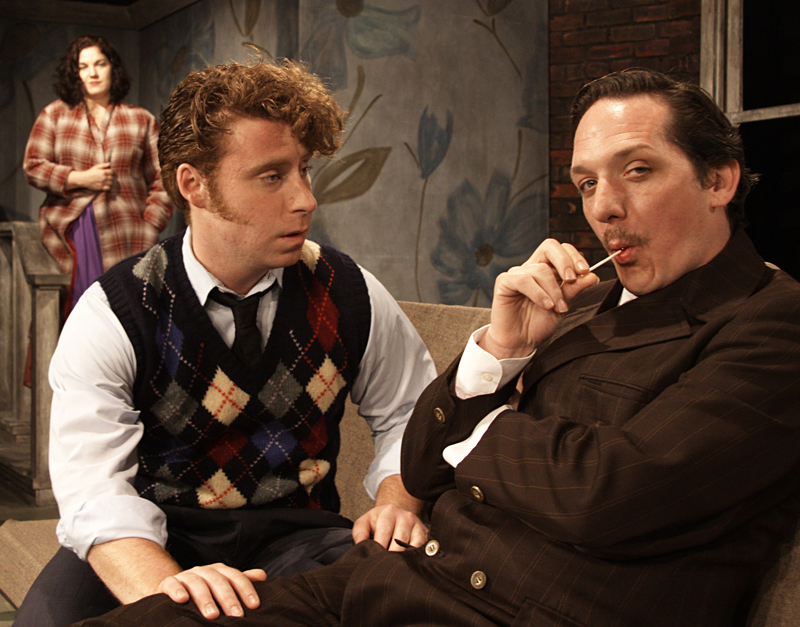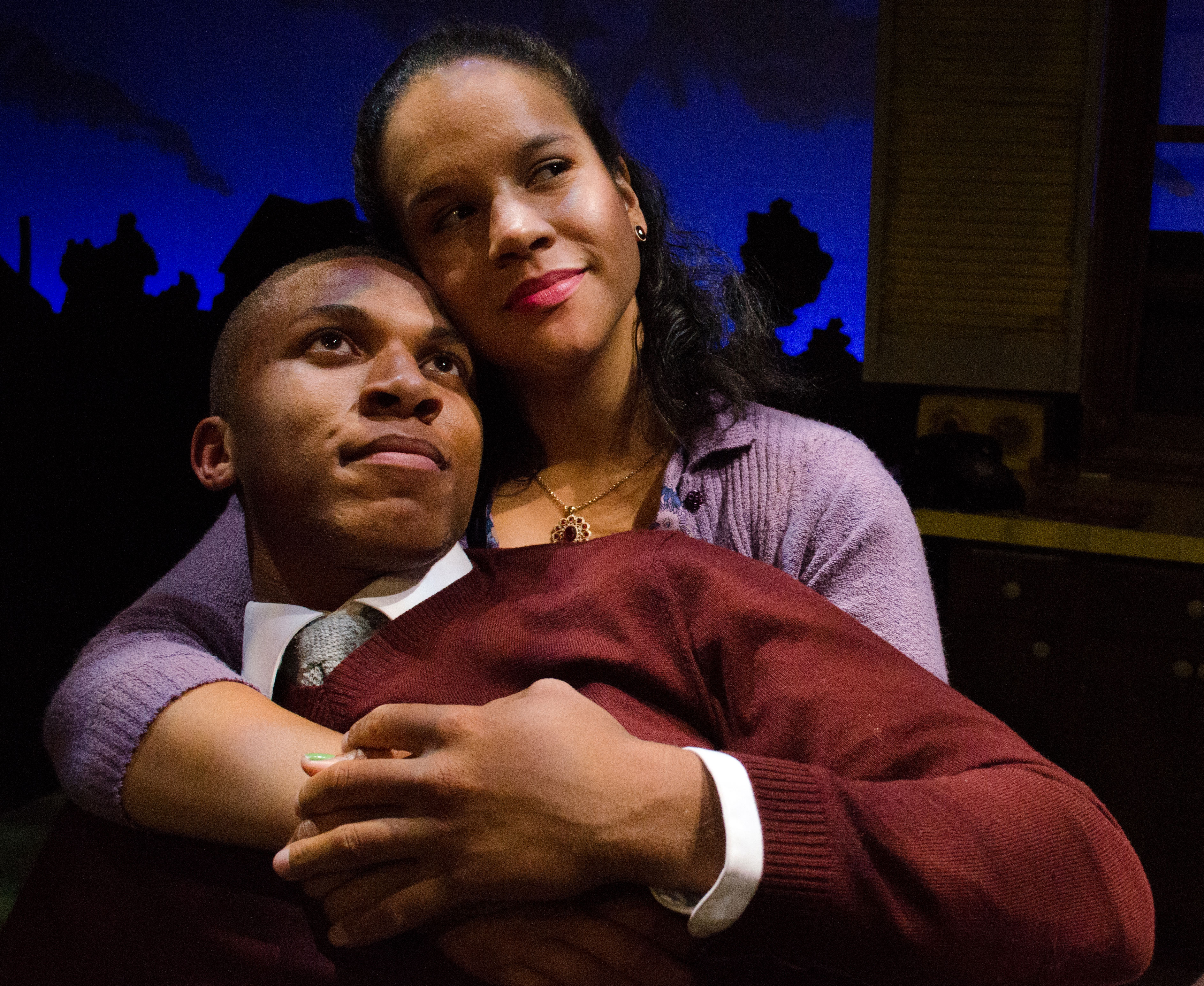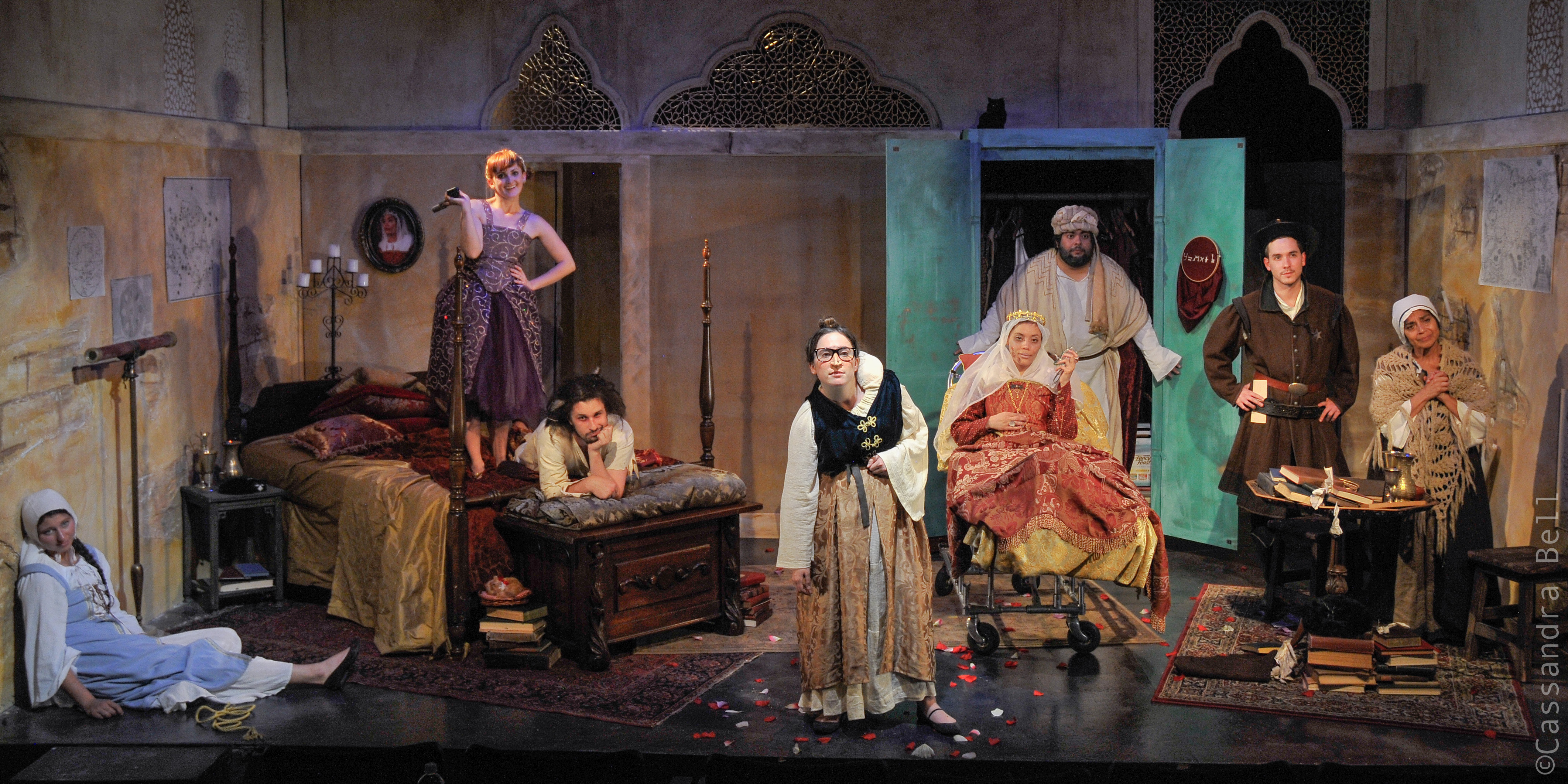Some people are primarily visual in the way they process incoming stimuli. I’m likely more auditory. I can carry a tune (with far-from-perfect pitch) after catching it a few times through. Accents come fairly easily, too, meaning that I can not only mimic them, but hear them in a show when they come and go like streetcars. Maybe that’s why it’s so crazy-making to sit through a play where the actors slip in and out of dialect; it’s like hearing a song you like on the radio but being unable to dial it in well enough to enjoy.
That’s the first setback for Entertaining Mr. Sloane, an otherwise well-performed 1964 black comedy by Joe Orton, the English playwright/provocateur famously bludgeoned to death by a jealous lover three years later. (It was a murder that, pain aside, Orton might have relished, since his entire canon was rife with killing, sexual adventurism, and disdain for propriety of any kind.)
Inconveniently for the cast at the Schmee, Orton was as unrepentantly British as Monty Python, Ricky Gervais, or Russell Brand. His work requires a firm grasp of English dialects, and for such a small plot of land, there are multitudes of them—all informed by class and locale. Only when these elements are solidly in place does a comedy about homicidal class warfare have enough foundation to support Orton’s vicious satire. Otherwise it’s an evening of three acts and the occasional can’t-miss joke. Those concerns were enough for director J.D. Lloyd to bring in dialect coach Michael Loggins, and it’s hard to know where things went awry from there.
Orton’s first hit play follows the abrupt implosion of a family, triggered by would-be boarder Sloane (Harry Todd Jamieson), who’s quickly fingered by elderly patriarch Kemp (Mark Fullerton) as the delinquent who murdered his boss two years earlier. His middle-aged daughter Kath (Lisa Viertel) has an altogether different appraisal of the strapping young Sloane; she smothers the lad with motherly affection while simultaneously using her fading wiles to seduce him. When her brother Ed (James Cowan) drops by, it becomes abundantly clear that his offer to hire Sloane as his private chauffeur carries its own not-so-hidden agenda as well.
What follows is a comedy of manners lampooning stuffy British mores that would play amusingly enough if the Schmee’s production moved at a gallop instead of a canter. Lloyd seems to think that if the show was taken up to tempo, Orton’s clever lines and plot twists might be lost on an audience straining to catch the accents. The sluggish staging only emphasizes the performers’ attempts to enunciate each working-class word. Suspension of disbelief dies one moment at a time. It’s like dancing with a partner who’s counting each step rather than moving to the music.
All this is a shame for the cast. Viertel’s performance as Kath finds that sweet spot between sympathetic and just plain pathetic, and she’ll pinch it until you squeal. Jamieson sketches out Sloane much as Orton might have intended: a lazy, licentious Lothario who puts his own decidedly sexual spin on situational ethics. Fullerton’s Kemp is a one-note dyspeptic grumbler whose silence about Sloane’s past is never explained. Cowan’s Ed is an effete social climber who ridicules the family that cast him out after a teenaged romantic indiscretion.
Technically, the show is on much firmer footing, with well-coordinated costumes, lights, and sound (the soundtrack offers a catchy assortment of early-’60s radio fare). A remarkably open and versatile set from designer Michael Mowery is ideally suited to Orton’s spy-through-the-keyhole dissection of British family values.
In the last analysis, though, it’s about putting the script over in a way that engages the eyes and the ears. The lesson here: Just because a play is in English doesn’t make it English.








